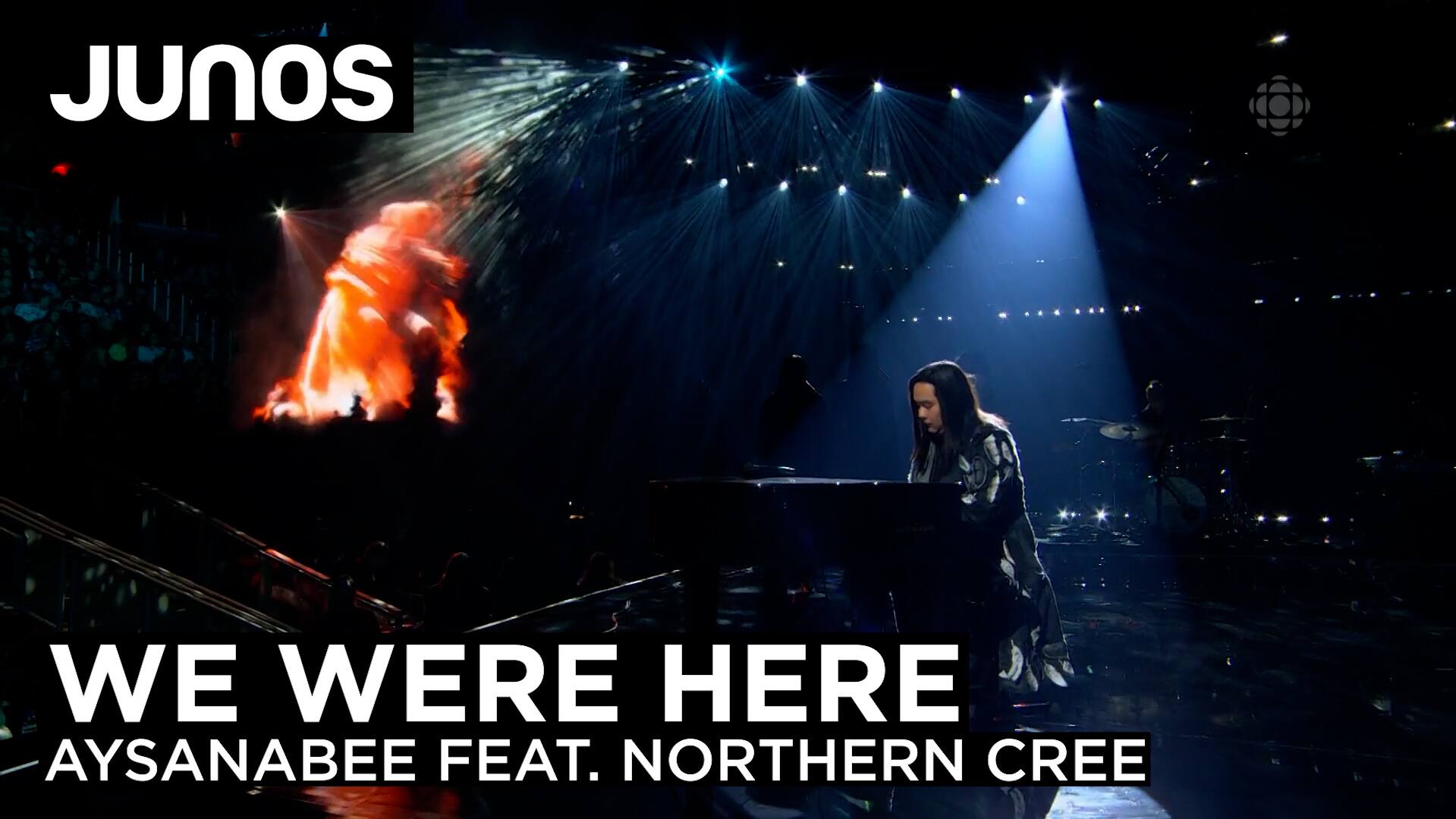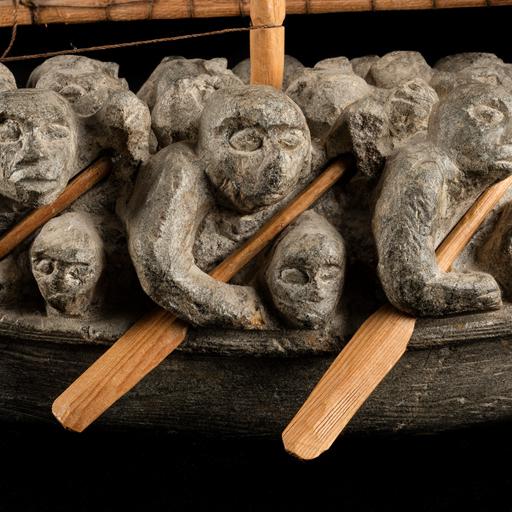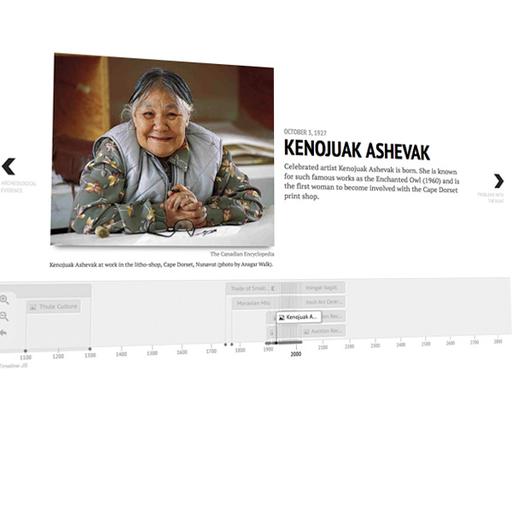Indigenous talent in the music industry is creating a 'beautiful resistance'
CBC News | May 17, 2023
Categories: news
Indigenous talent in the music industry is creating a 'beautiful resistance'
Indigenous musicians are sharing stories about surviving residential school, domestic abuse, grief and hope
Rhiannon Johnson · CBC Radio · Posted: May 17, 2023 12:47 PM EDT | Last Updated: May 19

The music industry is bursting with Indigenous talent spanning across genres and telling their own stories in their own ways.
"The coolest music …with the best lyrics and message is coming from our communities because we actually have something to say," Raven Kanatakta told Unreserved host Rosanna Deerchild.
Digging Roots is a blues/folk/soul duo with Kanatakta and his wife Shoshona Kish. They won Contemporary Indigenous Artist of the Year at this year's Juno Awards for their fourth studio album, Zhawenim.

Indigenous artists are making so much great new music today that it can almost be too much to keep up with, said singer-songwriter Jayli Wolf.
"We went from hardly having any of our experiences reflected in music to having so many beautiful stories being told and being shared," she said.
Kanatakta said that as Indigenous people, when our drumming, languages and even traditional foods were banned by colonizers, we began making new traditions of our own.
- 9 Indigenous musicians reflect on what truth and reconciliation means to them
- 1st-time Indigenous Juno nominees reflect on their music and journeys
Traditions like bannock emerged, but new types of music flourished, blending Indigenous sounds with other genres like reggae and blues.
"There's a beautiful resistance, and not resistance like I want to fight. It's resistance that I want to make love," said Kanatakta.
He continued there's a lot of lyrics in Indigenous music about unity, the future and the difficult histories that Indigenous people have experienced, but when that's combined it makes for music that is alive.
Sharing stories and working through trauma
Rising Oji-Cree star Aysanabee also got to shine on Canada's Juno stage this year.
His debut album Watin is named after his grandfather, who he had many long conversations with learning about his life, including his time spent in residential school.
"A huge worry on my mind when putting the album out was whether or not the album would retrigger residential school survivors," said Aysanabee, who is from Sandy Lake First Nation.
WATCH: Aysanabee performs at the 2023 Juno Awards

Aysanabee performs 'We Were Here' with Northern Cree at the 2023 Juno Awards
He was reassured by people who reached out and told him it was empowering to hear their stories told by their people, and not by outsiders.
Aysanabee said that some of the best feedback he received on the album actually came from residential school survivors.
He called it "probably some of the greatest feedback I've ever received."
Aysanabee's grandfather even told him that after listening to the album, he was able to move on, and move forward, with his own life as well.
"For my grandfather to take something as profound out of the project as well, I was really happy that this album was also having an impact on his life," he said.

For Haida/Cree rocker Kristi Lane Sinclair, writing and creating music has been like therapy.
Her newest album Super Blood Wolf Moon shares her personal journey as a survivor of domestic violence and PTSD. But more than that, it is a journey of reclamation, healing and ultimately, the power of women who rise above it all.
"There's no tax bracket, there's no age bracket, a lot of women go through this and it ain't what you see on Law and Order," she said.

Sinclair said that her psychiatrist said he wished he could prescribe an album for all of his patients — because in her creation of Super Blood Wolf Moon, she was able to face her trauma.
"I'm not trying to tell anyone what to do," she said. "But, I know when I was going through it I was looking for music, [but] I couldn't find it."
Slowing down
Zoon's new album is titled Bekka Ma'iingan, which in Ojibway translates to "slow down wolf."
Zoon is a musical project fronted by Daniel Monkman, an Anishnaabe artist and member of Broken Head Ojibway Nation who uses they/them pronouns.
Monkman, like many others, was forced to slow down in 2020, thanks to COVID-19 pandemic lockdowns across the country.

Monkman said it didn't occur to them how important slowing down was for them as they lost their father before the pandemic began and had also lost a close friend to an overdose right before .
"Before the pandemic I was grinding just like everyone else, just making enough to pay rent and feed yourself," they said.
"I never really got to grieve my dad's death and even my friend," they said.
Monkman said slowing down was an important part of his creative process, as it gave him time to reflect on where they had come from in his own life and the struggles they faced.
The new album explores the grief of losing loved ones, but it also is a celebration of their lives.
WATCH: Jayli Wolf's music video for Holding On
Jayli Wolf, who is a member of Saulteau First Nations, B.C., has also been taking time to slow down and enjoy life a little more. Her music has been a way to reconnect with her Anishnaabe identity and work through the trauma she experienced being raised as a Jehovah's Witness — a religion she later left.
Now Wolf's upcoming album, God is an Endless Mirror, is an exploration of a spirituality where she is experimenting with different sound elements and putting her poetry to music.
"It's been such a change and introducing a lot of organic sounds into the music and things that have been inspiring me day-to-day for the last couple months," she said.
"I'm here to love and to put more love into this world."


